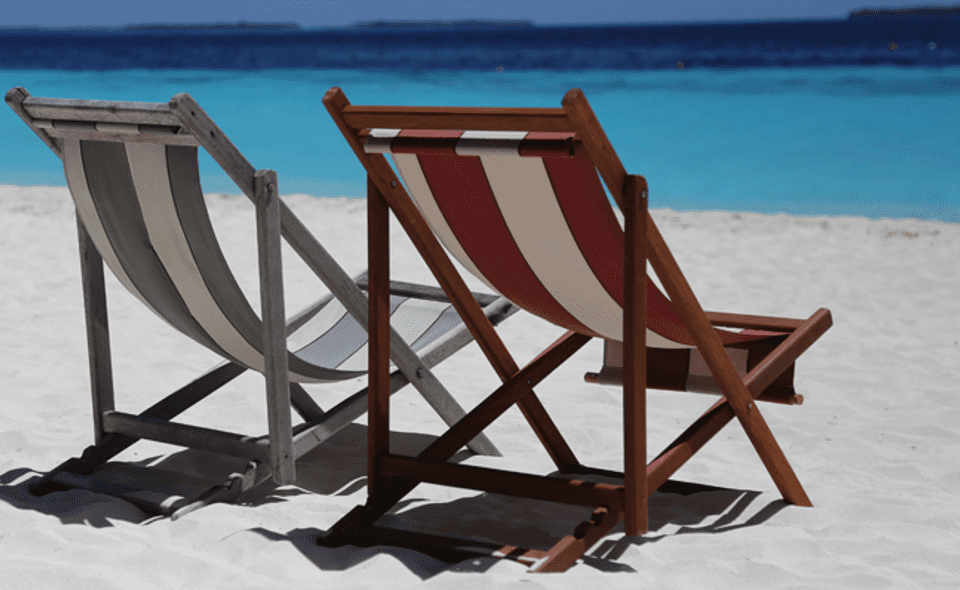How to prevent travel fatigue
The summer holidays have officially begun and among the chaos of organising the family, finishing off work, booking last-minute activities and remembering to pack all the essentials, it’s easy to forget how we might need to prepare to prevent travel fatigue when we arrive at our destination.

We recently spoke to more than 2,000 people as part of our very own Summer Sleep Survey and found that almost three-quarters of people surveyed struggle with their sleep in the run-up to a holiday or travel, so it looks like all the preparation and pressure to finish off tasks puts us at a sleep disadvantage before we add in the travel and jet lag!
To ensure a truly restful break there are a few simple tricks to help set you and your family up to enjoy every minute of your time away from home from the minute you land.
In the first part of this travel series, our resident sleep and wellbeing expert (and frequent flyer!), Natalie Pennicotte-Collier, answered our questions on jet lag, its symptoms and how to minimise the effects once you reach your destination, you can read all about it here.
In part two of this blog series, we focus on how to use your journey time to rest and re-energise, how best to sleep on a plane and how to arm yourself against travel fatigue.
What can I do before I leave to help prevent travel fatigue?
“Make sure you are fresh before you start, try to build in time to eat well, sleep well and make sure you are well hydrated. Taking some time to do some exercise too can really help to prepare for the challenges of travelling. If you are travelling with children make sure they are well rested. If you are travelling long haul, understand your destination’s new time zone,” advises Natalie.
The Hypnos Sleep Survey found that adjusting your watch to the new location’s time was people’s favourite way of acclimatising when abroad but 28% of people suggested that staying awake until they dropped also helped them.
Natalie added, “Gradually switching to the new time at your destination can help your body’s internal circadian rhythm to get used to the new hours – allow a day for every hour – but obviously it’s not practical to adjust too far ahead!
“It takes a mindful adjustment to get used to your usual timely habits, such as moving mealtimes and bedtime incrementally closer to the schedule of your destination.”
What’s the best way to sleep on your journey?
Travelling well is all about creating your own controlled environment – your very own ‘do not disturb’ zone. You can manage this by doing a few easy things:
- Dress for rest success, take a mix of layers to ensure you are well prepared for the temperature as you travel and when you arrive, most importantly ensure your outfit is comfortable to relax and slouch in - avoid man-made fibres, belts, tight fitting clothes and shoes, and spiky or heavy jewellery!
- Location, location, location; if you’re flying, where possible opt for a window seat in a quieter part of the plane to ensure the best possible chance for sleep and uninterrupted rest
- Suppress your senses; a great investment is noise-cancelling head phones or ear plugs and a good quality eye mask to reduce your exposure to sound and light. Take along a travel pillow to provide some extra comfort on long haul flights or car journeys.
- Try our guided meditation to help you relax or sleep whilst you travel
- Get some shut eye but make sure it’s quality sleep. One of Natalie’s top tips is to get the best quality sleep possible whilst travelling. She says: “During your journey, drink plenty of water and reduce your intake of caffeine and alcohol as these can dehydrate you, worsening the symptoms of jet lag and can be known to disturb sleep too (depending on your personal tolerance). Resist the temptation to take a sleeping pill to aid rest and relaxation as it’s not a natural, quality sleep that you’ll experience.”
But what if it’s impossible for us to use our journey to rest?
It’s realistic to accept that not all travel can be restful, and we know that for some, travel can be really stressful. In fact, half of frequent travellers report increased stress during long-haul trips. But perhaps some helpful items such as comfy pillows and blankets can help alleviate this and ensure you get some valuable shut-eye when you’re travelling. It might explain why 85% of those in our sleep survey opted to take these items with them on long journeys.
To counter the effects of travel fatigue upon landing, it’s important to harness the power of natural cues such as daylight, movement and mealtimes – ideally, get moving outside in the fresh air and natural light for best effect. For more tips on how to improve the symptoms of travel fatigue and jet lag head to part one of our blog post here.
Try our meditation to help you sleep in unfamiliar places.
*Ref: according to a report by the International SOS Foundation and Kingston University.

